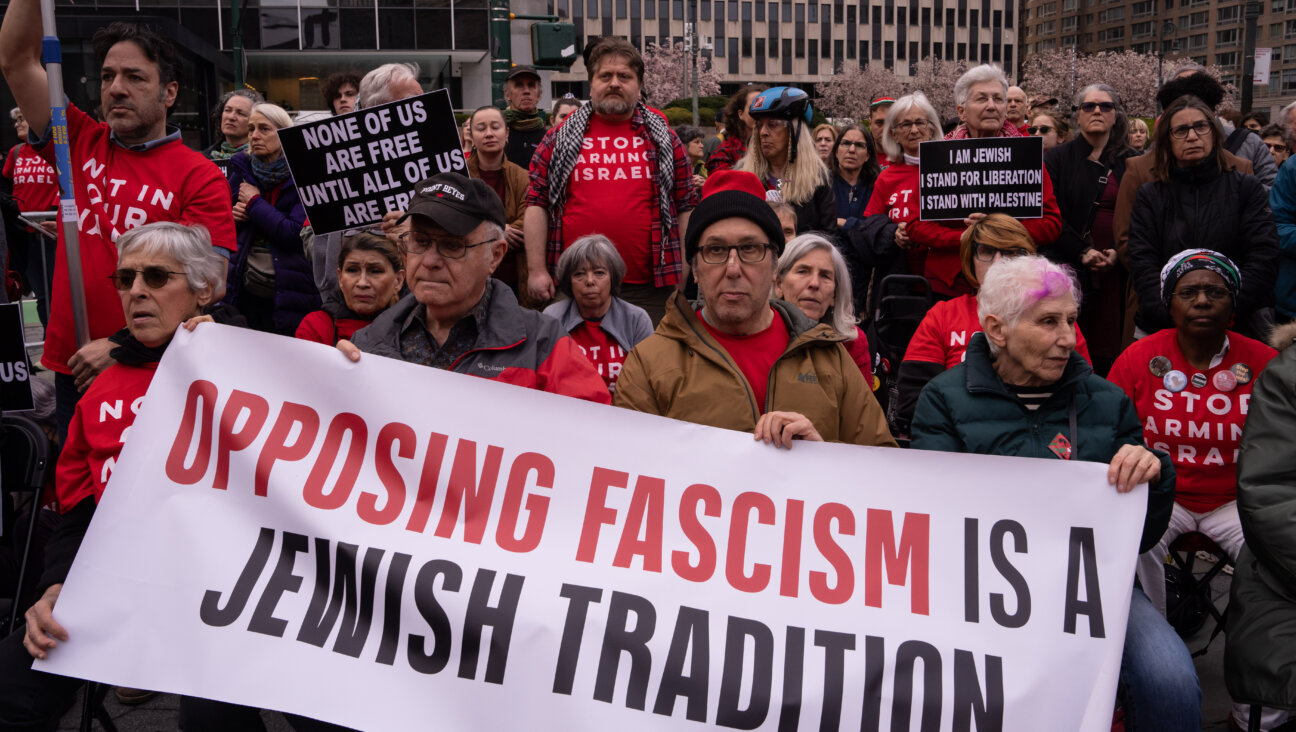The Boys Come Home
Israel’s lopsided prisoner exchange with Hezbollah last week brings to a close, in the saddest possible way, the final chapter of the Second Lebanon War. Two years and four days after that war began, the soldiers whose abduction lit the spark have finally come home, but not in victory. For two Israeli families, the return of their loved ones’ remains after two years of uncertainty brings an agonizing mix of closure and grief. For Israel, the handover of the two coffins fulfills a nation’s moral commitment to its citizen-soldiers that they will not be abandoned. It’s also a reminder, if any were needed, of the boundless cruelty of Hezbollah, which kept the soldiers’ families in limbo for so long.
For some Israelis, the exchange is an occasion for anger and indignation, most of it directed at their hapless prime minister, Ehud Olmert. Critics of the swap argue that Israel should never make deals with terrorists, because it rewards terrorism and encourages further attacks. Critics also complain that the deal Israel negotiated — four Hezbollah gunmen and a convicted child-killer in exchange for a pair of coffins — wasn’t good enough. The bottom line, using classic Borscht Belt logic, is that such deals should never be made and the payoff for them should be better.
Those protesters most inclined toward emotion are depicting the trade as the latest proof of Olmert’s cravenness, incompetence or both. More sophisticated critics acknowledge that Israel has made many similar deals over the decades; their argument is that the practice shows how Israel is weakened by misplaced tenderheartedness.
And indeed, Israel has made some famously unbalanced trades. In 1985, it swapped 1,150 Lebanese and Palestinian prisoners for three captive Israeli soldiers. In 2004, it freed 400 Palestinians and 20 Lebanese prisoners, including two high-ranking Hezbollah leaders, in exchange for three soldiers’ bodies and one suspected Israeli drug dealer, a reserve officer who possessed sensitive intelligence.
By one calculation, Israel has traded some 7,000 prisoners over the past three decades for 19 Israelis and eight bodies. The latest deal is neither the largest exchange nor the most obviously uneven. The deals are always controversial, but they always go through, because they must. Israel will go to great lengths to bring its boys home. So, it appears, will Palestinians and Lebanese.
It’s important to remember, too, that Israel has freed prisoners not only in bitter exchanges with terrorist militias, but also as goodwill gestures to its negotiating partner, Mahmoud Abbas’s Palestine Liberation Organization. More than 1,000 have been released over the past four years, both to move peace negotiations forward and to strengthen Abbas by letting him show his people the benefits of peacemaking. Olmert offered another such gesture last week in Paris, perhaps to offset the upcoming exchange with Hamas. These releases should not be controversial among Israelis, but they are. They do not bring humiliation or grief, but promise.
In fact, exchanging prisoners is an integral part of war because it necessarily precedes the peace. In battle, each side tries to remove the enemy’s fighters from the field, dead or alive. Soldiers captured alive are kept as prisoners of war, and when the war is over, they go home. The principle is an ancient one, enshrined in modern times in the Geneva Conventions on rules of war.
Israel’s ambivalence about these swaps is not unique to Israel. This is the unresolved dilemma of modern asymmetrical warfare — that is, of terrorism and guerrilla war. The Geneva Conventions govern wars between states and the treatment of their uniformed soldiers. But terrorists do not observe the laws of war, and when captured they are not prisoners of war, subject to Geneva rules. States have never agreed what law should apply to them.
Most Western nations, including Israel, arrest terrorists and try them as common criminals, as befits their horrific tactics. But they are not common criminals, either.
Israel in particular punishes terrorists more harshly than others committing the same crimes — whether murder or rock throwing — because it understands their deeds to be attacks on the state, acts of war. In prison they are frequently treated much like prisoners of war, permitted to organize themselves and to negotiate conditions.
In the end, terrorist prisoners nearly always go free when the war is over, often with their jailers’ grudging acknowledgement as leaders of liberation movements — the African National Congress in South Africa, the Mau Mau in Kenya and, for that matter, Menachem Begin’s Likud.
For Israel, that time has not yet come. Israel has not yet reached a peace agreement, and the Palestinians have not found their Mandela or Kenyatta. For now, Israelis have the bitter immediacy of war and mourning. But, as they learned again this week, they also have the honor of the brave and a hope for better times.
The Forward is free to read, but it isn’t free to produce

I hope you appreciated this article. Before you go, I’d like to ask you to please support the Forward.
Now more than ever, American Jews need independent news they can trust, with reporting driven by truth, not ideology. We serve you, not any ideological agenda.
At a time when other newsrooms are closing or cutting back, the Forward has removed its paywall and invested additional resources to report on the ground from Israel and around the U.S. on the impact of the war, rising antisemitism and polarized discourse.
This is a great time to support independent Jewish journalism you rely on. Make a gift today!
— Rachel Fishman Feddersen, Publisher and CEO
Support our mission to tell the Jewish story fully and fairly.
Most Popular
- 1

Opinion The dangerous Nazi legend behind Trump’s ruthless grab for power
- 2

Opinion A Holocaust perpetrator was just celebrated on US soil. I think I know why no one objected.
- 3

Culture Did this Jewish literary titan have the right idea about Harry Potter and J.K. Rowling after all?
- 4

Opinion I first met Netanyahu in 1988. Here’s how he became the most destructive leader in Israel’s history.
In Case You Missed It
-

Culture Trump wants to honor Hannah Arendt in a ‘Garden of American Heroes.’ Is this a joke?
-

Opinion Gaza and Trump have left the Jewish community at war with itself — and me with a bad case of alienation
-

Fast Forward Trump administration restores student visas, but impact on pro-Palestinian protesters is unclear
-

Fast Forward Deborah Lipstadt says Trump’s campus antisemitism crackdown has ‘gone way too far’
-
Shop the Forward Store
100% of profits support our journalism
Republish This Story
Please read before republishing
We’re happy to make this story available to republish for free, unless it originated with JTA, Haaretz or another publication (as indicated on the article) and as long as you follow our guidelines.
You must comply with the following:
- Credit the Forward
- Retain our pixel
- Preserve our canonical link in Google search
- Add a noindex tag in Google search
See our full guidelines for more information, and this guide for detail about canonical URLs.
To republish, copy the HTML by clicking on the yellow button to the right; it includes our tracking pixel, all paragraph styles and hyperlinks, the author byline and credit to the Forward. It does not include images; to avoid copyright violations, you must add them manually, following our guidelines. Please email us at [email protected], subject line “republish,” with any questions or to let us know what stories you’re picking up.













